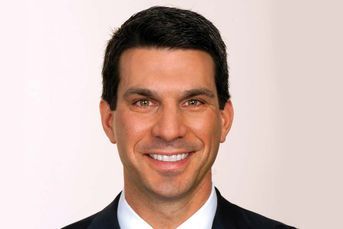FPA goes to Hill over broker-dealer rule
Financial advisers are leaving nothing to chance in their long-running battle against brokerage houses over the so-called “Merrill…
Financial advisers are leaving nothing to chance in their long-running battle against brokerage houses over the so-called “Merrill Lynch rule.”
As the Senate Banking Committee prepares to hold confirmation hearings on Harvey Pitt, the president’s likely nominee to head the Securities and Exchange Commission, the Financial Planning Association is taking steps to make sure its concerns over the proposed rule get some airtime.
The FPA recently sent letters to each of the 20 senators on the committee, suggesting questions that they could pose to Mr. Pitt about his position on the measure.
“My guess is that the rule will be addressed, and questions will be raised,” says Jesse Jacobs, spokesman for the committee’s chairman, Sen. Paul Sarbanes, D-Md. “The [chairman] has indicated that there will be broad questioning, not just, `Can you do the job or not?”‘
hackles raised
The pending rule would exempt certain brokers from registering as investment advisers under federal law.
Cindy Fornelli, deputy director of the SEC’s division of investment management, says the agency’s staff is still considering the measure.
“We don’t plan to make a recommendation to the commission until after a new chairman is in place,” Ms. Fornelli says.
But her boss, Paul Roye, has said in various speeches that his staff expects to recommend that the commission adopt the proposed rule as written.
That’s enough to raise the hackles of almost any planner.
“We understand what the SEC is trying to do, and appreciate the spirit and intent of it,” says Guy Cumbie, the FPA’s president. “But the way it’s being done makes us see unintended consequences that may be worse.”
Specifically, the FPA worries that brokers giving advice will be able to hide behind the rule by simply calling a client’s account a brokerage account.
Securities regulators proposed the broker-dealer rule – at the suggestion of Merrill Lynch & Co. Inc. – in 1999 to fix what they saw as an inherent conflict of interest involving commission-based brokers.
Their contention is that as long as a broker’s pay is based on the number of trades made, their interests will never align with those of their customers.
The 1940 Investment Advisers Act also requires that anyone who gets “special compensation” – typically interpreted as anything other than commissions – must register as an adviser.
The proposed rule would change that.
It would let the test be whether the person has discretion over clients’ assets rather than how the client pays for those services.
In other words, even if the account is fee based, which the SEC prefers, the broker could be exempt from registering as an investment adviser, as long as advice is incidental.
Mr. Cumbie says that he has heard that Mr. Pitt is unfamiliar with the proposed rule.
“Obviously he’s about to step into an arena where it will be on his radar screen,” Mr. Cumbie says. “But I won’t pretend to know what he’s going to think about it.”
powerful interests
Allies of the FPA aren’t optimistic.
Barbara Roper, director of investor protection at the Consumer Federation of America, says that she’s withholding judgment on Mr. Pitt and whether he will support her position. But she’s not hopeful.
“We’re allied against some pretty powerful interests who want this rule adopted,” Ms. Roper says.
“If you can’t persuade someone like [former SEC Chairman Arthur] Levitt of the investor protection concerns, you’d have to question whether you’re going to persuade someone who’s spent his career representing the industry point of view,” she adds.
Mr. Pitt is thought to be more sympathetic to business interests by virtue of his past legal work.
His background has led some experts to claim that investor interests will suffer under his watch – especially coming on the heels of Mr. Levitt’s tenure. He was known for championing regulations that protected small investors.
If confirmed, Mr. Pitt will replace Laura Unger, who has been serving as acting chairman since Mr. Levitt stepped down in February.
As of last week, confirmation hearings for Mr. Pitt had not been scheduled, nor had a formal nomination reached the committee.
Mr. Pitt’s formal nomination is awaiting customary background checks by the FBI.
Learn more about reprints and licensing for this article.





